You can’t be with your dog 24/7. Whether you work outside the home or need to run out for a few errands, your dog will certainly be left alone.
And it can become irksome if you step out for a trip to the market only to return to a disaster zone.
If your dog feels an empty house is an invitation to engage in unwanted behaviors, like…
- Eating furniture
- Barking nonstop
- Digging on floors or carpeting
- Attempting to escape
- Being generally destructive
…your first thought might be that your dog is bored.
Maybe they didn’t get a full walk that morning, or you think they find a quiet house to be understimulating.
Or…perhaps more likely…you’re dealing with a case of separation anxiety.
Separation anxiety can be very stressful for your pup, resulting in a wide range of bad behaviors.
Is your dog bored, or do they have separation anxiety?
Let’s get to the bottom of this…
How To Tell if Your Dog is Experiencing Separation Anxiety
Dogs can certainly get bored.
Especially high-energy breeds like Border Collies, German Shepherds and Poodles.
So how can you tell if your dog has separation anxiety, or is just bored?
It boils down to two things…
1. Does the unwanted behavior (barking, chewing, digging) stop when you return home?
If you find that when you get home, your dog stops chewing on furniture and goes to relax on his dog bed, then it definitely seems like your dog’s behavior and stress has to do with your absence.
This is separation anxiety!
2. Does taking your dog on a walk cause the unwanted behavior to stop?
If your dog engages in bad behaviors while you are home, take them for a walk. If they race around and act like they’ve never seen the blue sky before, they might have extra energy to burn off.
In this case, the unwanted behavior is likely due to boredom.
In my experience, bad behaviors while you’re out of the house are typically caused by separation anxiety, NOT boredom.
And separation anxiety is a dog psychology issue – it can’t simply be treated with food, treats or discipline. It’s a HIERARCHY issue!
What does that mean?
Think about it this way…
If you see a two year old crossing the street alone, you don’t just sit there with a cup of tea and say, “Oh, how cute.”
You run after the child and do everything in your power to grab the kid and make sure they are safe.
This is how separation anxiety works.
In your situation, your dog believes that they are the adult and that you are the two year old child.
The second you leave their view, they PANIC. The dog thinks they are in charge and that you are not safe on your own, which causes your pup a whole lot of stress.
When they can’t settle, they begin their path of destruction or try to escape to find you.
There are other types of anxiety your dog could be experiencing. Check out one of my previous blog posts to learn more about other fears or anxiety your dog might be going through (specifically rescue dogs) so you can help them.
Luckily, there is an easy fix to easing your dog’s separation anxiety.
The SOLUTION: Establish Yourself as the Parent In Charge
Separation anxiety is triggered when your dog thinks that they are the boss of your household.
When you leave the house, they think that they’re responsible for managing things while you’re away. They also worry about where you are and if you are safe.
It’s time for you to take the responsibility of managing the household away from your dog!
Once they understand that they can look to you for guidance and reassurance, they begin to calm down and relax.
When they can trust you to provide protection, nourishment and companionship for them, they no longer feel responsible for keeping you safe and protected.
It all comes down to training and communicating with your dog in a way they can understand. Establishing a healthy relationship means you need to tap into the psychology of your dog.
How can you do that?
My Dog Calming Code™ program helps you think like your dog so you can connect on a deeper level. Using my kind and gentle training tactics, you can help your dog calm down and turn to you for guidance when they need it most.
Once your dog understands their place in your family’s hierarchy, they can begin to relax and trust that even when you’re not there, you have everything under control.
And…magically…you’ll notice those unwanted behaviors like chewing, digging and escaping suddenly disappear!
And you won’t feel terrible leaving your weeping dog behind every time you need to run out for an errand or go to work.
Learn more about my Dog Calming Code™ today for a calmer household tomorrow. This program has helped over 88,000 doggy parents curb their pup’s bad behavior.
Want to wait it out and see if your dog outgrows separation anxiety? That can be very dangerous. Here are some scary things that can happen when you forego training.
And here are some other tips to help with your dog’s separation anxiety…
Set Your Dog Up For Success While You’re Away
Leaving your dog can be hard.
And it becomes even worse when your dog is dealing with anxiety.
Here are some tips to help you safely make your exit so your dog will remain calm and collected well after you leave.
- Establish a predictable routine. This helps calm a dog with anxiety because they know what to expect (and when they can expect to get attention from you!).
- Make sure your dog has adequate exercise. The phrase “a tired dog is a happy dog” absolutely rings true, and exercise is a huge stress reliever (for doggies and their parents!).
- Designate a specific area in your house where your dog can lie down and relax. This might be a dog bed or other comfortable space.
- Try to avoid “triggers” that might signal you’re about to leave. If your dog usually starts going crazy when you grab your coat or keys, start doing that but not leaving the house. If they aren’t triggered by these items, they might start out in a calmer state when you leave the house.
These are just a few tips to help set the stage for everything you’ll learn in the Dog Calming Code™.
And if your dog simply won’t stop barking, give my podcast a listen to find out what you can do to ease the barking (and their separation anxiety).
Can Calming Aids Help?
While calming aids or medications can help, they are not a SOLUTION to your dog’s separation anxiety.
However, they can be used as a tool to provide temporary relief for your dog while you’re also implementing a solid training program, like the Dog Calming Code™.
I recommend using Doggy Dan’s Angel Oil, which is a natural CBD oil product.
Of course, it’s ALWAYS important to talk to a vet before you introduce any form of medication or calming aid into your dog’s diet. Make sure your vet gives you the green light to give it a try.
Separation anxiety can be difficult on the entire family. But it’s a problem that can be easily fixed with a few training tools at your disposal.
Also on the topic of leaving your dog at home safely, I recently wrote an article for Porch.com called How can pet owners create a safe environment for their dogs when they are away from home? Check it out.
To a calm, happy and stress-free doggy!
~ Doggy Dan 😄


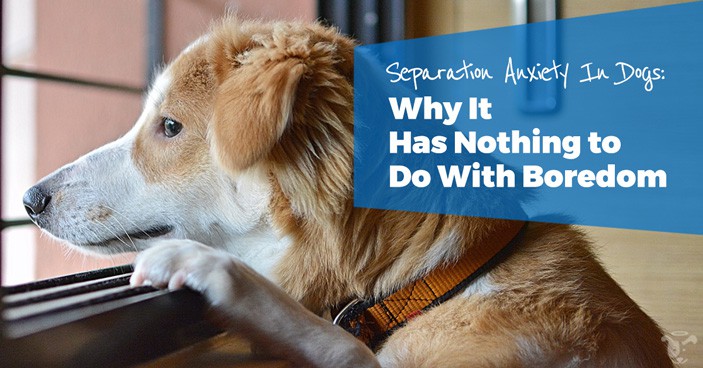

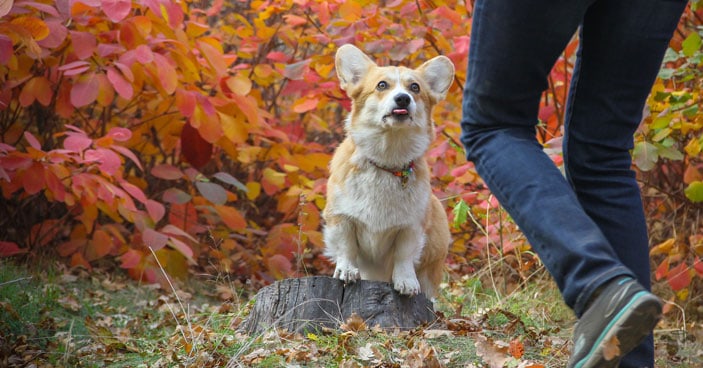

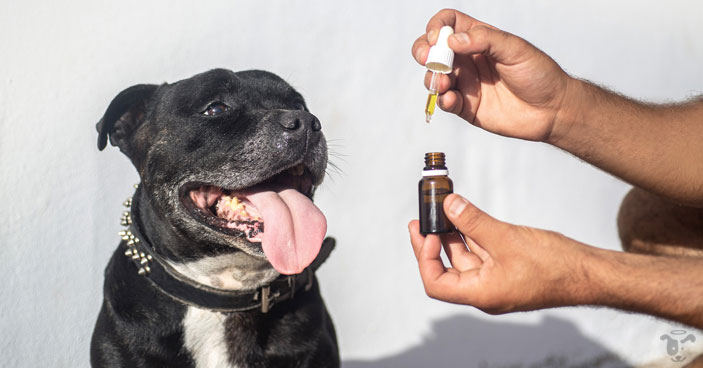

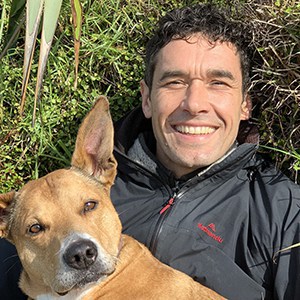

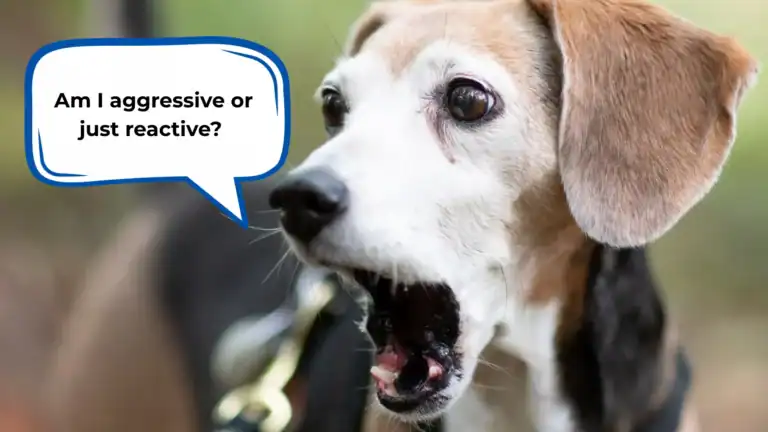
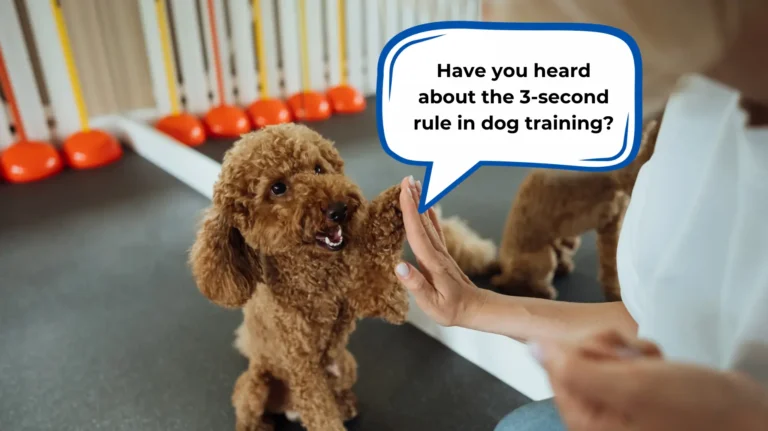
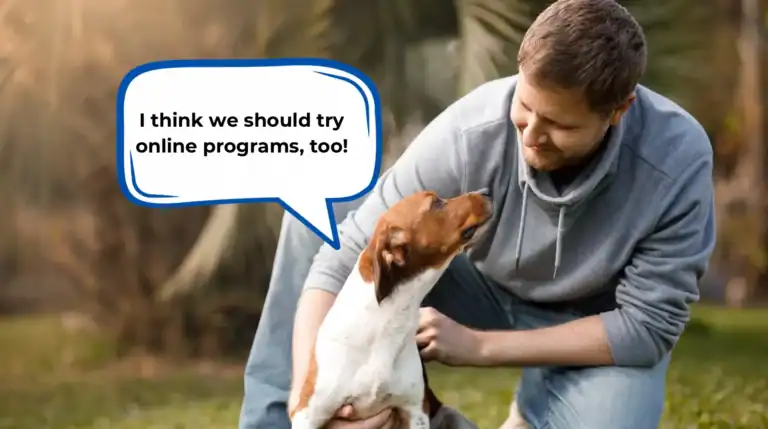
6 Responses
Hi Dan, I used your training for my dog for the first year or two we had him from a pup. His behaviour is exceptional and he’s great with all people, young to old. He’s got a reputation for being a great dog. He’s 8 now, and is a pretty sensitive guy – he’s had a couple of summers with anxiety of bees (buzzing), which we’ve got over but was hard work. And just now we’ve had to put ear drops in, and he’s been in his safe space (under our bed) for a lot of the time. We stopped treating his ears 8 weeks ago, but he’s still retreating under the bed. He’s fairly happy when he comes out, but it’s short lived and he’s highly suspicious of us. I also always feel like he blames me if something gets sore on him, he stands on a thorn etc. Any help to bring back the happy wee man?
Hi James,
I have a saying that I use a lot when dogs are acting anxiously or fearfully……’make nothing of it!’ Our human reaction when someone is scared is to try to verbally comfort them, but when we do this to dog it can actually make them feel far more anxious, because we are making a big deal about the situation. I liken it to that moment when kids fall over & they immediately look to their parents to see if it’s a big deal……if Mum/Dad act as if everything is ok then often the child will get up and continue on, but if Mum/Dad over-react then the child will often erupt into a ball of tears. This is essentially the idea that if you make nothing of a ‘negative’ situation then the dog/child handles it better.
So if your dog is acting warily around you then just ignore her and pretend she is not there. By that I mean, avoid eye contact or speaking to her. When you see that she is more relaxed and calm, then you can call her over for a pat/fuss……avoid rewarding the undesirable behaviour, and rewards the desirable behaviour!
Hope that makes sense, Doggy Dan
I’ve been working on the Calming Code with my rescue dog. He is improving in certain ways. But I have a question. When is it okay for me to interact and give him affection? It seems like I spend a lot of time ignoring him.
Hi Shannon, if you feel like you are spending a lot of time ignoring your dog then you are probably right! All you need to wait for is your dog to be calm and not trying to gain your attention, and then you can call them over to say ‘hi’ or give them some affection/attention. Also, you can allow your dog on your couch/bed/lap to give them some affection if you like, just make sure you have invited them there in the first place! All the Best, Doggy Dan
I have an almost 10 month old Shepherd/Husky puppy. I got her when she was 4 months old. Up until about a month ago she was perfect. Now she will not go outside and if she goes upstairs it could be days before I can get her downstairs. Please help. Otherwise, Bella is a great puppy.
Hi Laurie, it can be common for young dogs to go through a bit of a fear phase and rather than try to push them through it, or give too much attention to their fear, there are better approaches that will help. Making sure that your dog really understands that she can really trust you to keep her safe in all situations will be an important factor in helping her become more confident. The information you give her to help her needs to be relevant to her and something she understands…..which is why I put together the Dog Calming Code! It’s essentially how you show your dog, in a way that makes sense to them, that they can trust you to keep them safe. My website TheOnlineDogTrainer.com shows you very clearly how to achieve this…maybe take a quick look…its a $1USD trial for 3 days…All the Best, Doggy Dan